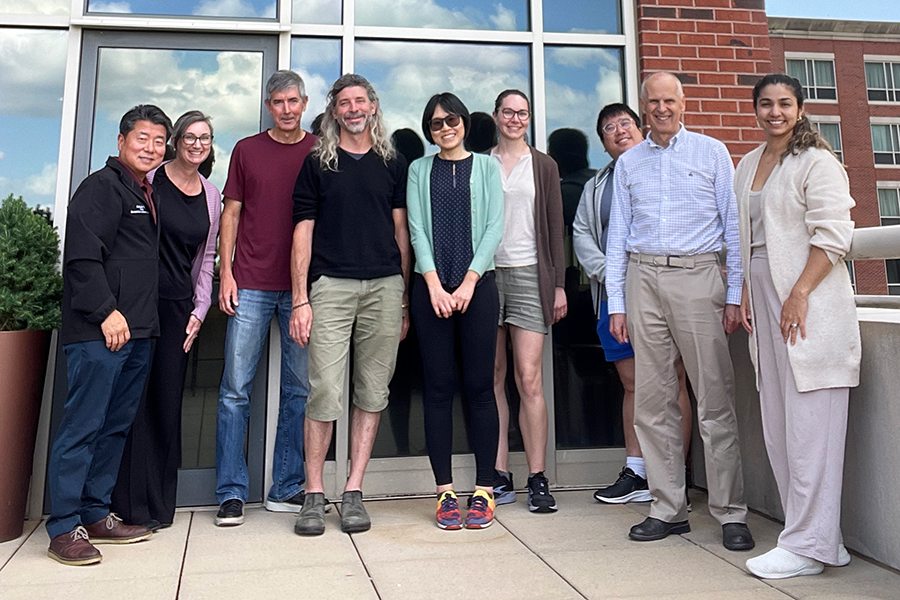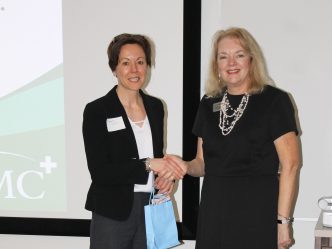Writing a grant proposal can pose a challenge for faculty members of any level. While it’s a skill that can be applied to a wide range of fields, it requires a specific approach depending on the discipline or area of focus, as well as time and practice to master.
To better help faculty – particularly those who are early in their careers – learn the ins and outs of writing successful grant proposals, the Institute of Public and Preventive Health in Augusta University’s School of Public Health has offered the Grants Mentoring Program for the last five years. The program, led by Aaron Johnson, PhD, and Teal Benevides, PhD, aims to reduce the learning time to help faculty members whose research interests align with public health. The primary requirement is that applicants must not have previously received significant external research funding as a principal investigator.
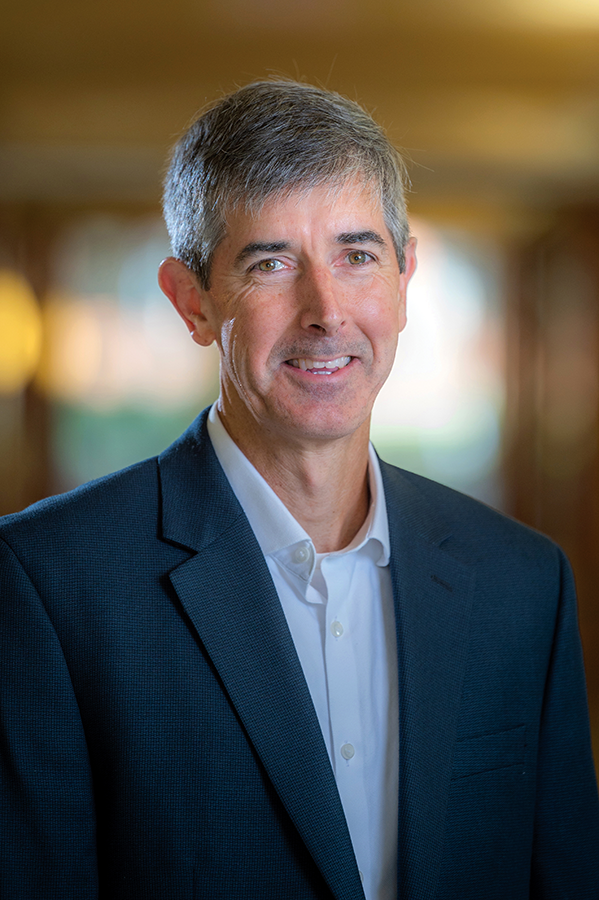
“Over the course of the five years of the program, we’ve had faculty from just about every college and school at AU,” said Johnson, associate dean of Research and Community Engagement and director of IPPH. “When we say research interests need to align with public health, it’s a bit of a broad understanding because so much can fall under the umbrella of public health. A great example is Dr. Alicia Becton and Dr. Jordon Beasley from the College of Education and Human Development, who are interested in health literacy. Dr. Beasley went through our program, and the project that was recently funded is related to student mental health in school settings.”
“IPPH’s Grants Mentoring Program was such a great experience for me. The program is really well designed and implemented with group and individual feedback, engaging speakers and ample opportunities to actually participate rather than simply consuming information,” Beasley said. “It has made me a stronger researcher and grant writer.”
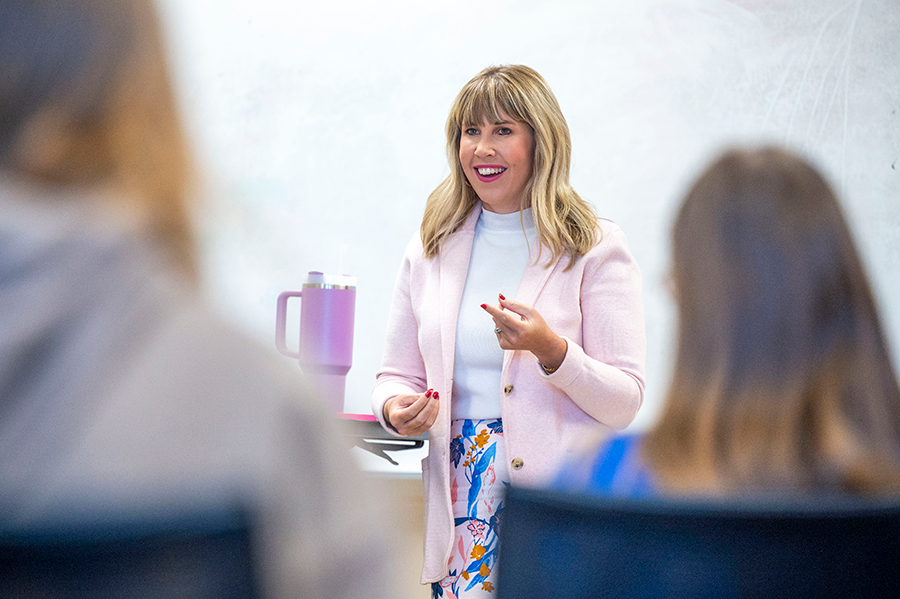
This year, the cohort consisted of nine faculty from across the university, including Meng-Han Tsai, PhD, an assistant professor in the Department of Medicine in AU’s Medical College of Georgia and a researcher for the Cancer Prevention, Control, and Population Health program at the Georgia Cancer Center; Audrey Johnson, PhD, DPT, an assistant professor in the Department of Physical Therapy in the College of Allied Health Sciences; Darla Linville, PhD, an associate professor in the Department of Research, Counseling & Curriculum in the COEHD; Brittany Pinkerton, PhD, an assistant professor in the Department of Kinesiology in the College of Education and Human Development; and five faculty from within the School of Public Health.
The program’s flexible schedule provides a robust training experience featuring workshops, seminars and guided proposal preparation.
For those who are invited to participate in the second year, the experience expands to include an external and editorial review by IPPH faculty mentors, pre- and post-award services and up to $2,000 to help with research and travel support for preliminary data collection, analysis or travel to a conference. Mentees accepted to the second year of the program are also invited to attend the three-day writing retreat in Greenville, South Carolina, with up to 18 hours of writing time and additional opportunity to meet with a mentor.
“The ultimate goal is that at the end of the two years, they will submit a proposal to an extramural funder. Some choose to go the National Institutes of Health route, some choose to apply for other federal funders, like the National Science Foundation, the Health Resources and Services Administration or the Substance Abuse and Mental Health Services Administration, and some choose to go with a private foundation that they’ve identified that funds the type of work that they do,” Johnson said. “Some people come into the program a little further along in the thought process, and so they’ll submit a proposal in less than the two years.”
“This program is a great way to share resources and meet other faculty members from across campuses whom I probably would have never met, especially to have the opportunity to work together on projects.”
Kim Barker, PhD, associate dean and professor in the College of Education and Human Development
Deborah Jehu, PhD, went into the Grants Mentorship Program having experience with a couple of smaller pilot grants, and this gave her a strong base for when she entered the program, as she was able to scale up her project to something more robust.
“I’m very thankful I was able to secure pilot funding on my first try because I know I wouldn’t have been able to tackle an R01 randomized clinical trial without the Grants Mentoring Program,” said Jehu, a member of the 2022 cohort. “I learned that there’s a lot more to the process than I initially thought – forms, paperwork and so on. The program really opened my eyes to all that. Writing a first draft of an R01, CDC or other grant was also a huge help, and getting feedback from my peers in the program was invaluable.”
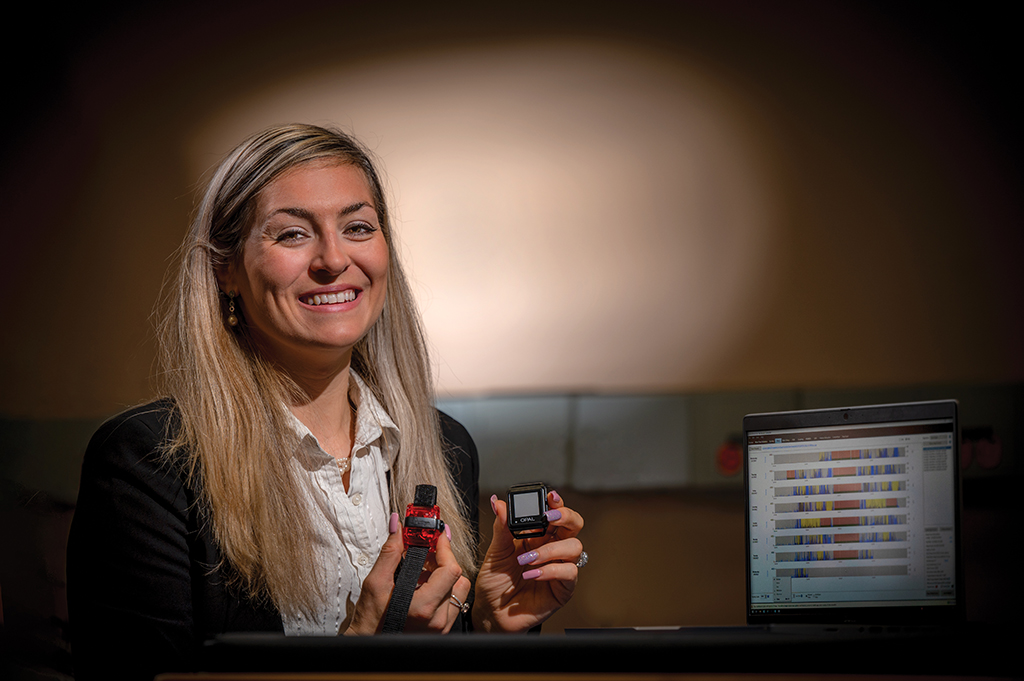
Over the course of the two years, Jehu took part in numerous seminars and workshops, including one about different avenues for seeking out extramural funding.
“We learned about sources of funding, grant writing techniques and general dos and don’ts. They covered a lot about who funds different types of research, like foundational funders versus federal funders, and the ins and outs of federal versus foundational funding,” Jehu said. “Federal funders usually have clearer guidelines for their expectations, whereas foundational funders might not have all the background support or clearly written guidelines, so it’s more about building relationships with them to get funded.”
Kim Barker, PhD, associate dean and professor in the College of Education and Human Development, was a member of the 2021 cohort that included Biplab Datta, PhD, an assistant professor in the Department of Health Management, Economics, and Policy in the School of Public Health and Wendy Turner, PhD, a professor in the Katherine Reese Pamplin College of Arts, Humanities, and Social Sciences.
Barker credits the program for helping her take her grant writing skills, particularly as a PI, to the next level.
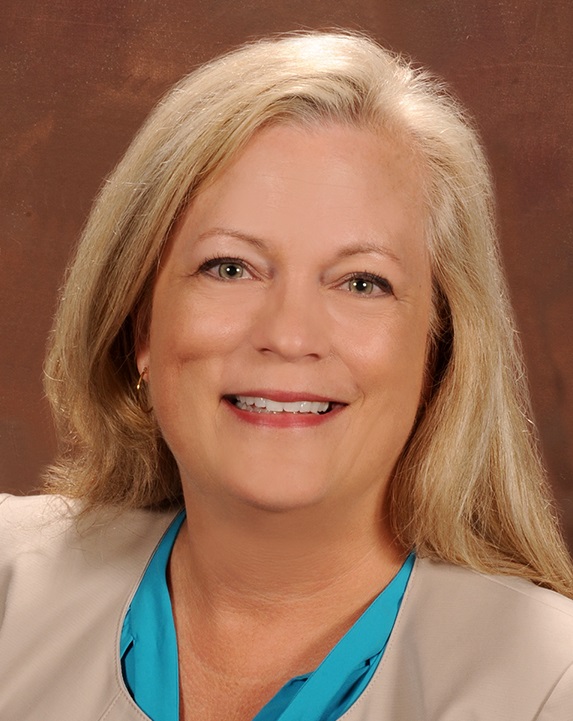
“I had some experience working with larger grants as a program coordinator when I was at Georgia State, so when I came to Augusta as a tenure-track professor, I applied for and got several small grants, but I really wanted to take that to the next level,” Barker said. “When my group met, we received a lot of very direct instruction on things to do with grant writing, but we also got assistance with learning how to write a bio sketch, and not just writing it, but getting feedback from others within our group and from the mentors.”
As a professor of literacy, Barker sees the direct connections between literacy and health, and she has worked to cultivate partnerships across AU, including with the Department of Occupational Therapy in the College of Allied Health Sciences.
“These intersections between health and literacy are so vital, especially in our community,” she said. “This program is a great way to share resources and meet other faculty members from across campuses whom I probably would have never met, especially to have the opportunity to work together on projects.”
After completing the program, Barker was able to successfully apply for three mid-sized grants. While her next application for a larger grant from the Department of Education was denied, she was able to use it as another learning experience tied to the Grants Mentoring Program.
“I was like, ‘Oh, this is great. I’m three-for-three,’ and then I applied for a DOE grant, and we didn’t get it,” Barker said. “But I did get those first three grants, and having that support and feedback made an incredible difference.”
Datta credits the program for equipping him with all the tools he needed to successfully write grant proposals after never having written a grant before joining the faculty at AU.
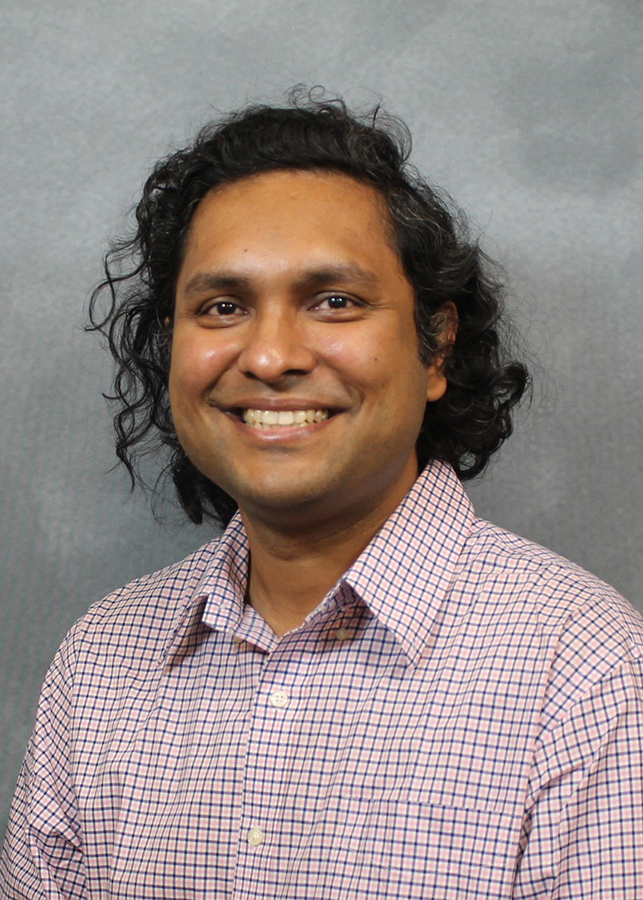
“I’m a huge advocate of this program because of my background in economics, where we traditionally don’t learn about grant writing,” said Datta, who worked for the Centers for Disease Control and Prevention prior to coming to AU. “When I joined Augusta University, I had zero experience in writing grants, preparing applications or building a team. This program taught me all of these skills and more. Not only did it expose me to certain aspects of grant writing, but it also provided the necessary mentorship and assistance to develop a grant and submit it. I got feedback and guidance from my peers, who were from different disciplines like Pamplin College and the College of Education and Human Development. They brought different perspectives, which helped me consider views I hadn’t thought of before. The multidisciplinary cohort was incredibly helpful in understanding different perceptions.”
The healthy mix of perspective from peers and mentors alike was something that Ashwini Pandey, PhD, a member of the 2022 cohort, really appreciated, as well.
“I benefited from hearing about my cohort members’ experiences and learning about other opportunities they were pursuing,” said Pandey, an assistant professor in SPH’s Department of Community and Behavioral Health Sciences. “This was a strong aspect of the program, as it allowed me to learn from others’ perspectives on what they were applying for. I was fortunate to receive mentorship from two highly experienced faculty members who had been successfully funded across different grant agencies. They provided valuable guidance, and I can’t stress enough how fantastic it was to have their support.”

Not only was the feedback helpful, but she also enjoyed being able to see how others approached their grants while being able to learn to critique and give better feedback.
“We spent a significant amount of time evaluating each other’s work and potential applications, which helped me refine my own submissions,” Pandey said. “I also enjoyed evaluating everyone’s work because you see different writing styles, and it helps you think creatively about your own writing. The more you practice writing and editing, the more it builds your skills. You see how others phrase things or devise a rationale for their work or even find collaborators. It’s been great talking to them, and I find that I can write faster now, with more exposure to different styles.”
 Augusta University
Augusta University
